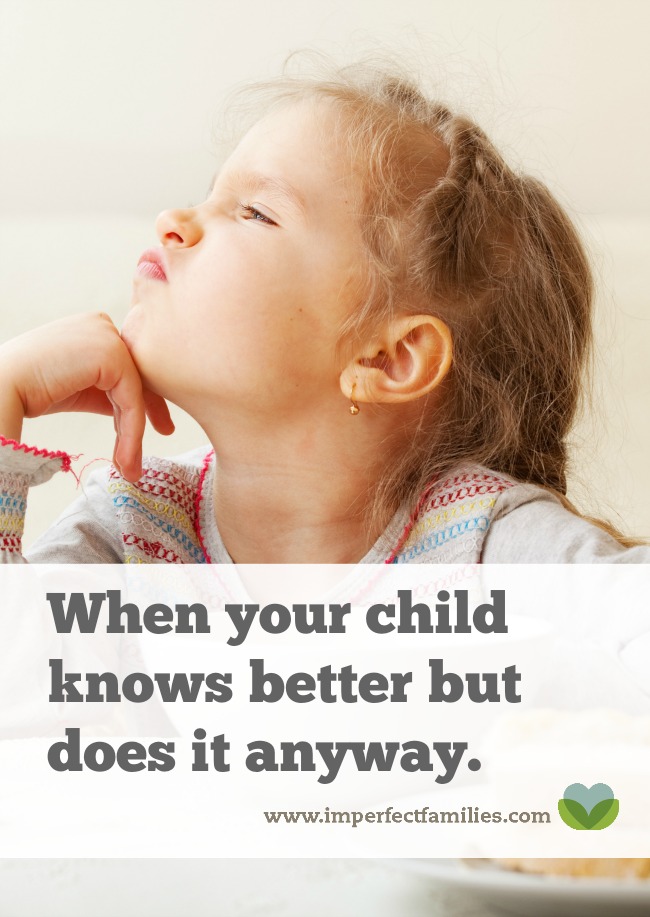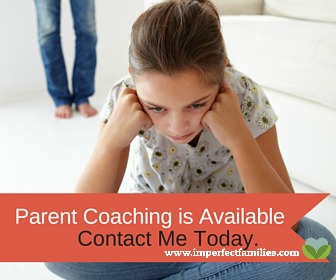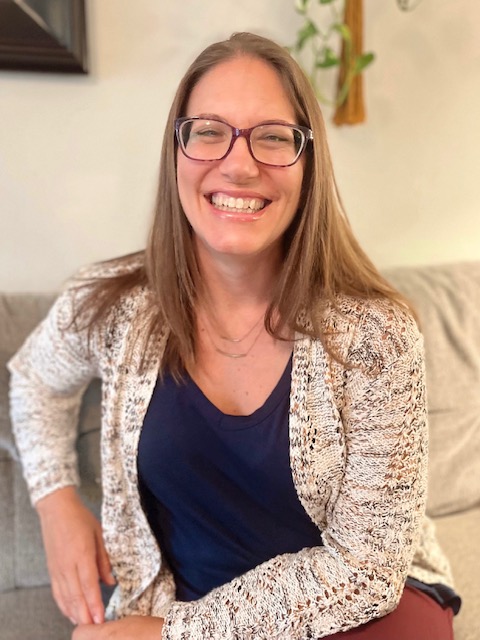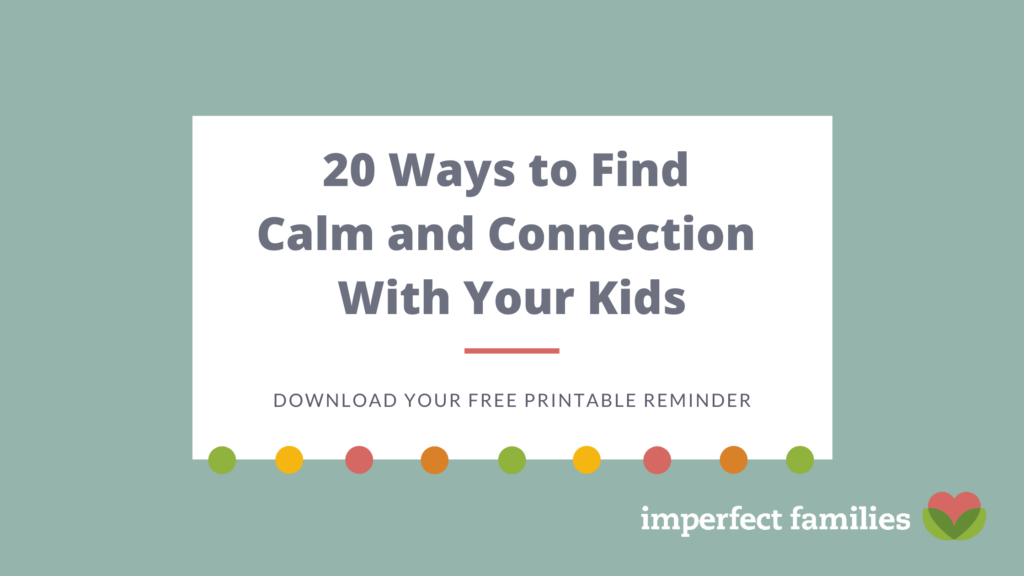
The call from the school came out of the blue.
Your child pushed someone at recess. The other kid went to the nurse. Your child went to the principal’s office.
Furious, you scan through a list of possible consequences.
Apparently, everything you’ve tried to teach about kindness was useless.
Or, was it?
What to do when your kids know better.
We do our best to prepare our kids for challenges and teach them how to problem solve. We pick them up when they fall and encourage them to keep moving.
And then, at some point, we step back – deciding they should know how to do it on their own now. That they have had enough training and preparation to make the better choice in the future.
This assumption isn’t always conscious.
It’s a quiet belief that we carry around, pulling it out when our kids mess up. It causes us to say things like, “Henry, I’m surprised at you! You know better than that!” Or, “I’ve told you a thousand times!”
So, how do you respond?
The first place to start when your kids know better (but do it anyway)…you.
What assumptions are you holding about your child’s behavior?
Do you assume that…
- They wanted to make a bad decision.
- They knew a better way but deliberately decided against it.
- They thought through their actions ahead of time.
- They thought about the consequence of their behavior in advance.
When we start with one of these assumptions, we often see our kids as “bad,” “lazy,” or “disrespectful.” We say that they’ll “never learn” or that they “are just trying to get their way.”
Not the most helpful perspective.
What if we changed or challenged some of these assumptions?
Instead of believing that your child knows better and did it anyway, let’s take a look at how kids grow and learn.
- Kids want to stay connected to their caregivers. Biologically, kids are wired for connection. (Their initial survival depends on it!) Even though some of your child’s behaviors may appear to push you away, this goes against their instinct. So, let’s assume that their goal is to stay in close relationship with you.
- Their brains are still forming. The brain goes through a tremendous growth from infancy to adulthood. This is not a one-time event, it’s a journey. Your child may be able to understand complex math facts, and at the same time, have difficulty thinking critically about decisions and evaluating the consequences.
- Self-Regulation is a work in progress. While the brain goes through these transitions and leaps, your child’s ability to self-regulate is also improving. This is a slow, uneven process. There will be times when they handle situations beautifully, and then there will be times when they completely meltdown.
- They don’t always know the best way to respond. As kids grow, they will be required to navigate new social situations and take on more responsibility. Problem-solving together gives you an opportunity to talk through expectations, clarify options, plan ahead, and practice how to do it better next time.
- Look for progress, not perfection. So many things impact our child’s ability to make a good choice – their mood, the environment, who they’re with, if they’re hungry or tired. Your child may be willing to share if they’re in a good mood, but struggle later in the day when they’re tired. Instead of holding them to the same standard, celebrate successes, and come along side them when it’s hard to make the better choice.
When we look at our child’s behavior through these filters, we are able to see them as kids who are learning, growing, and need our support.
Now this, we can work with!
Helping your kids “do better.”
Yes, it’s frustrating when you have to have the same conversation again. Or when you have to re-teach a skill you just reviewed yesterday.
Shifting our perspective from “you know better!” to “how can I help you ‘do better’?” may be a good place to start.
Sitting down with your son you say, “Rough day on the playground, eh?”
No fancy lectures. No judgment. Just empathy.
Opening up the conversation, maybe you’ll hear that he was sticking up for a smaller kid, or that he has been bullied repeatedly by the other child…or that he was just feeling annoyed.
Whatever you find, you’ll have a place to start.
Checking your assumptions, you’ll be able to say, “OK, how can I help you manage this situation better next time?”
How can I help you?
If your child continues to have difficulty in certain situations or seems to struggle constantly to do the “right” thing, maybe it’s time to sign up for a Parent Coaching session. We can talk through your child’s challenges, and explore other ways to help them “do better” with your support. Learn more about Parent Coaching here.




Comments have been turned off to retain the privacy of all families. If you have a question or comment on the topic, you're always welcome to contact me.